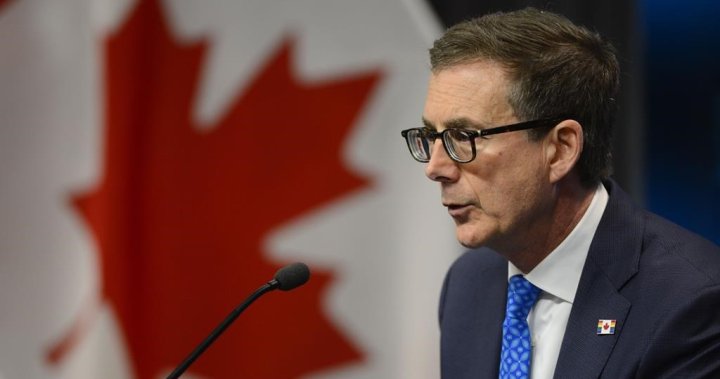
Interest rates are headed up. What it means for variable and fixed mortgage rates
Global News
Whether you're shopping for a home or about to renew your mortgage, here's what to know.
The Bank of Canada (BoC) said on Wednesday it’s keeping its trend-setting interest rate on hold for now, but borrowing costs for many Canadians are likely headed up.
On Wednesday, Canada’s central bank said it is holding its key interest rate at 0.25 per cent, where it has been since March of 2020. But details of its policy announcement have analysts warning that interest rates are likely to climb higher sooner and faster than previously expected.
Those revised forecasts have implications for current and prospective borrowers, including homebuyers and current mortgage holders.
“Barring another economic calamity, rates are going up. And they’re going up before the end of spring, possibly sooner,” says mortgage strategist Robert McLister.
Amid soaring inflation, the central bank hinted that the first interest rate hike could take place as soon as the April-to-June quarter of 2022. Analysts had previously expected rates to begin rising from record lows in the second half of 2022.
Raising interest rates makes it more expensive to borrow and typically cools off economic activity and price increases, which helps tame inflation.
The sooner-than-expected rate increases analysts now expect sometime around the middle of next year would influence the cost of loans and credit with variable interest rates, such as variable-rate mortgages and most lines of credit.
But another type of interest with implications for mortgages has already begun to rise and could continue to do so after Wednesday’s BoC announcement. That’s the yield or interest rate on government of Canada bonds, which is a key benchmark Canadian lenders use to determine the interest on fixed mortgage rates.


















